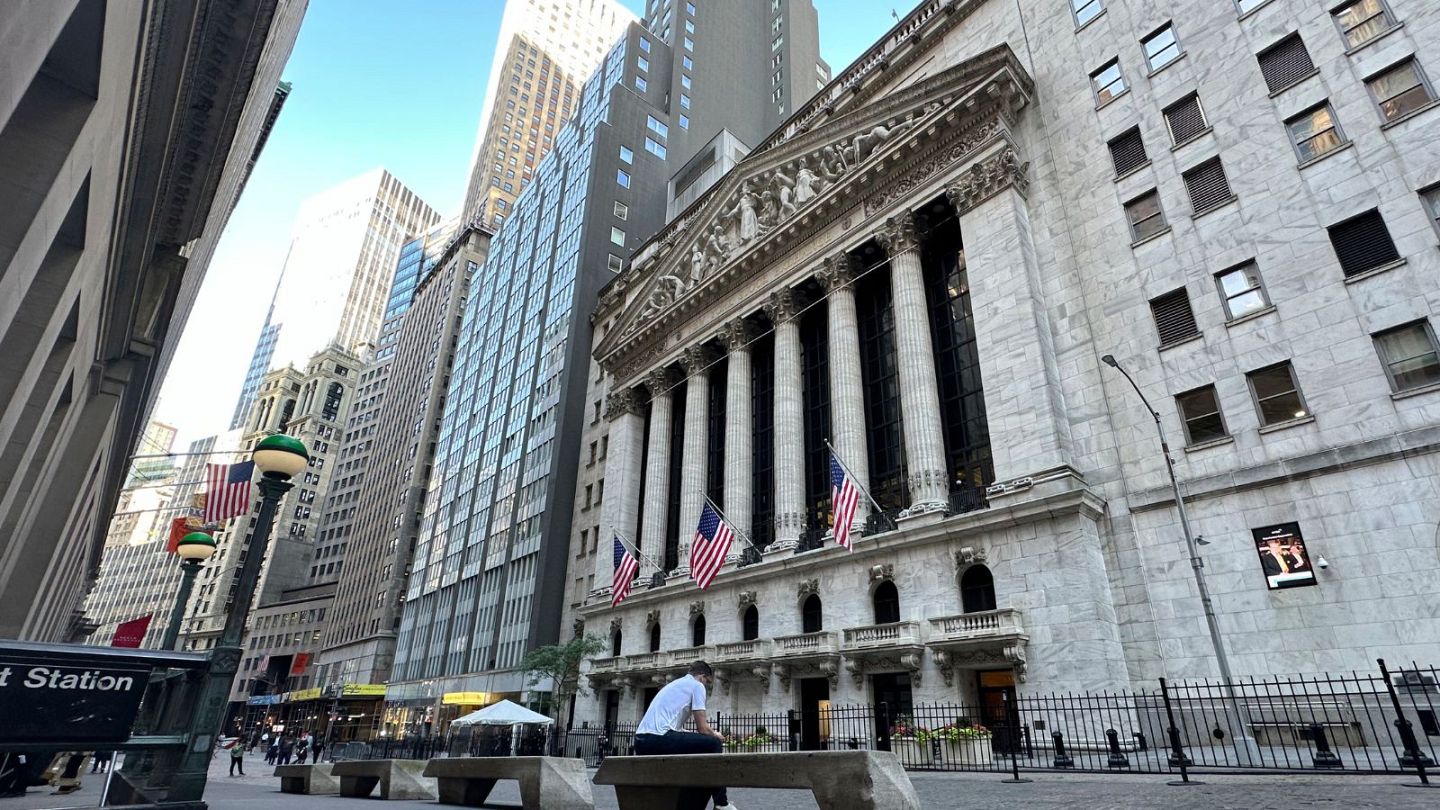U.S. stocks fell again after another day of market turbulence.
Dramatic fluctuations followed global stock market rallies in the early hours of the day: indices rose by 6% in Tokyo, 2.5% in Paris, and 1.6% in Shanghai.
U.S. stocks resumed their decline on Tuesday after another day of market turbulence, with Wall Street experiencing a sharp drop from the early morning gains as the day progressed. Following the morning surge, stocks fell after President Donald Trump announced that starting Wednesday, the U.S. would impose a 104% tariff on all imports from China. The S&P 500, which had risen as much as 4.1% in the early hours of the day, reversed those gains and fell by 3%. Eventually, it reduced its losses to 1.6%, leaving the index about 19% below February's record. The Dow Jones Industrial Average lost 320 points, or 0.8%, after wiping out a massive gain of 1,460 points, while the Nasdaq composite index dropped by 2.1%. These sharp fluctuations followed global rallies in stocks that had risen by 6% in Tokyo, 2.5% in Paris, and 1.6% in Shanghai in the early hours of the day. Despite these gains, analysts warned that more volatility could be expected in the coming days and hours. The key question for investors is how long Trump will maintain the high tariffs imposed on other countries, which could raise prices for U.S. consumers and slow down the economy. If the tariffs continue, economists and investors expect a potential recession. However, if Trump can resolve the situation quickly through negotiations, the worst-case scenario may be avoided. There is still hope for a negotiated solution on Wall Street, which fueled the early rally. Trump stated that his conversation with South Korea's acting president helped bring both countries closer to a "big DEAL." In a statement on his social media platform, Truth Social, Trump wrote, "Top representatives are flying to the U.S., and things look good." "Similarly, we are also talking to many other countries that all want to make a deal with the U.S." Japanese stocks led the global market rise following Prime Minister Shigeru Ishiba's appointment of a trade negotiator for talks with the U.S. Meanwhile, China promised to "fight to the end" after Trump threatened to further raise tariffs on the world's second-largest economy and announced that it would take countermeasures. White House Press Secretary Karoline Leavitt confirmed on Tuesday Trump's threat to raise tariffs, stating that imports from China would be taxed at 104% and that the decision would take effect after midnight. According to senior trade negotiator Jamieson Greer, Trump indicated that no exemptions or exceptions would be allowed. The U.S. trade representative also stated in testimony before a Senate committee that about 50 countries had reached out to discuss trade and that the U.S. was open to negotiations.


